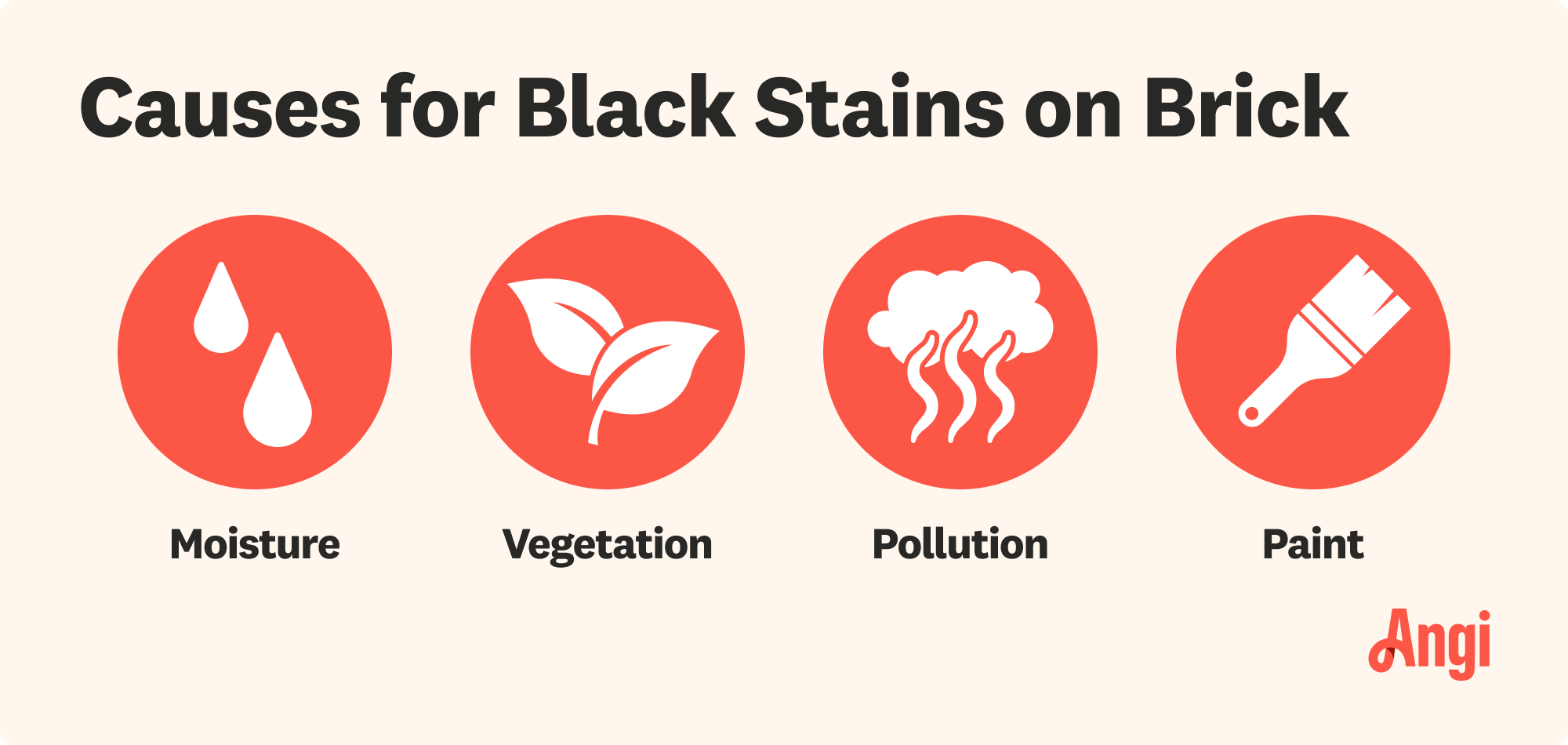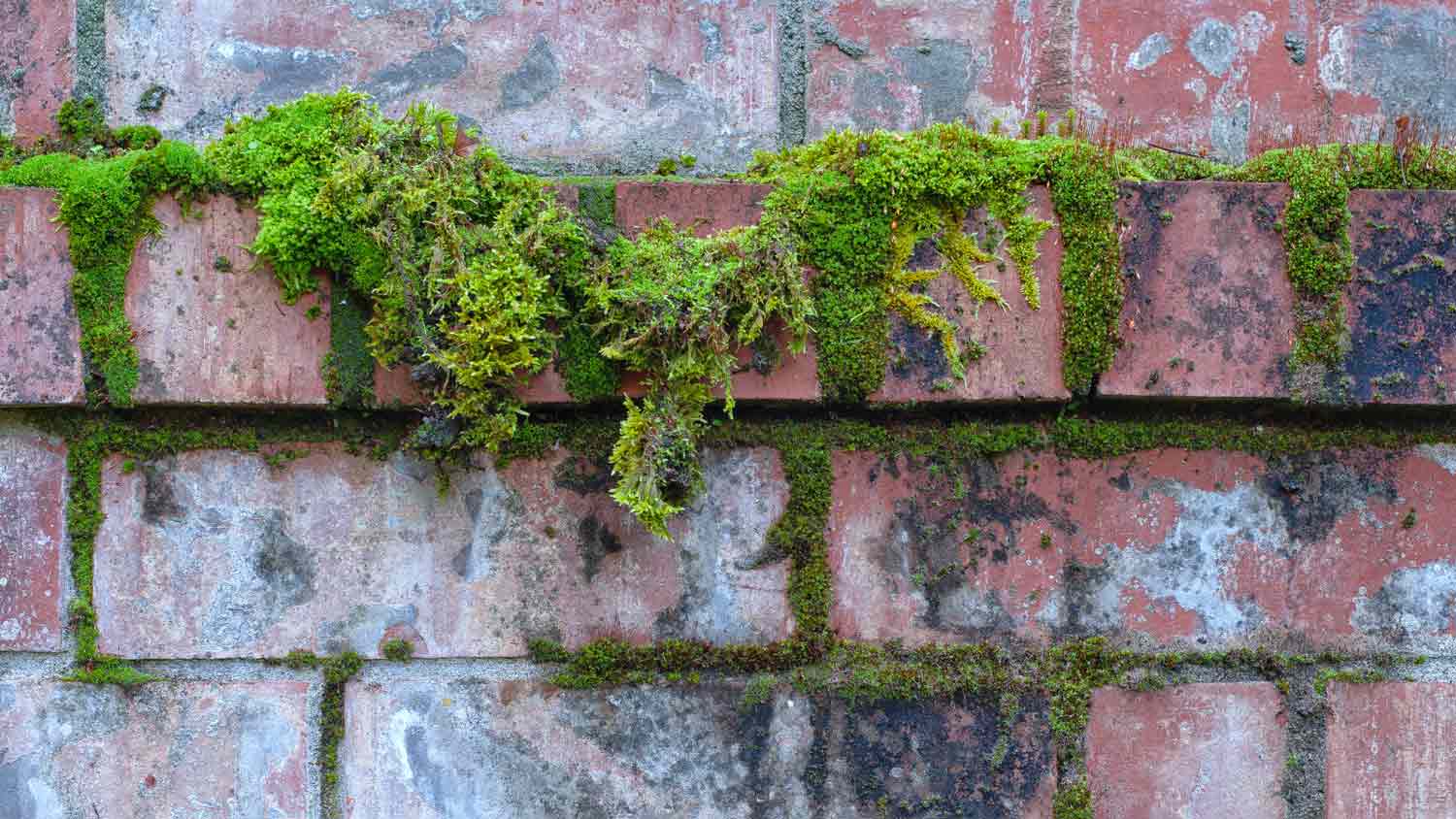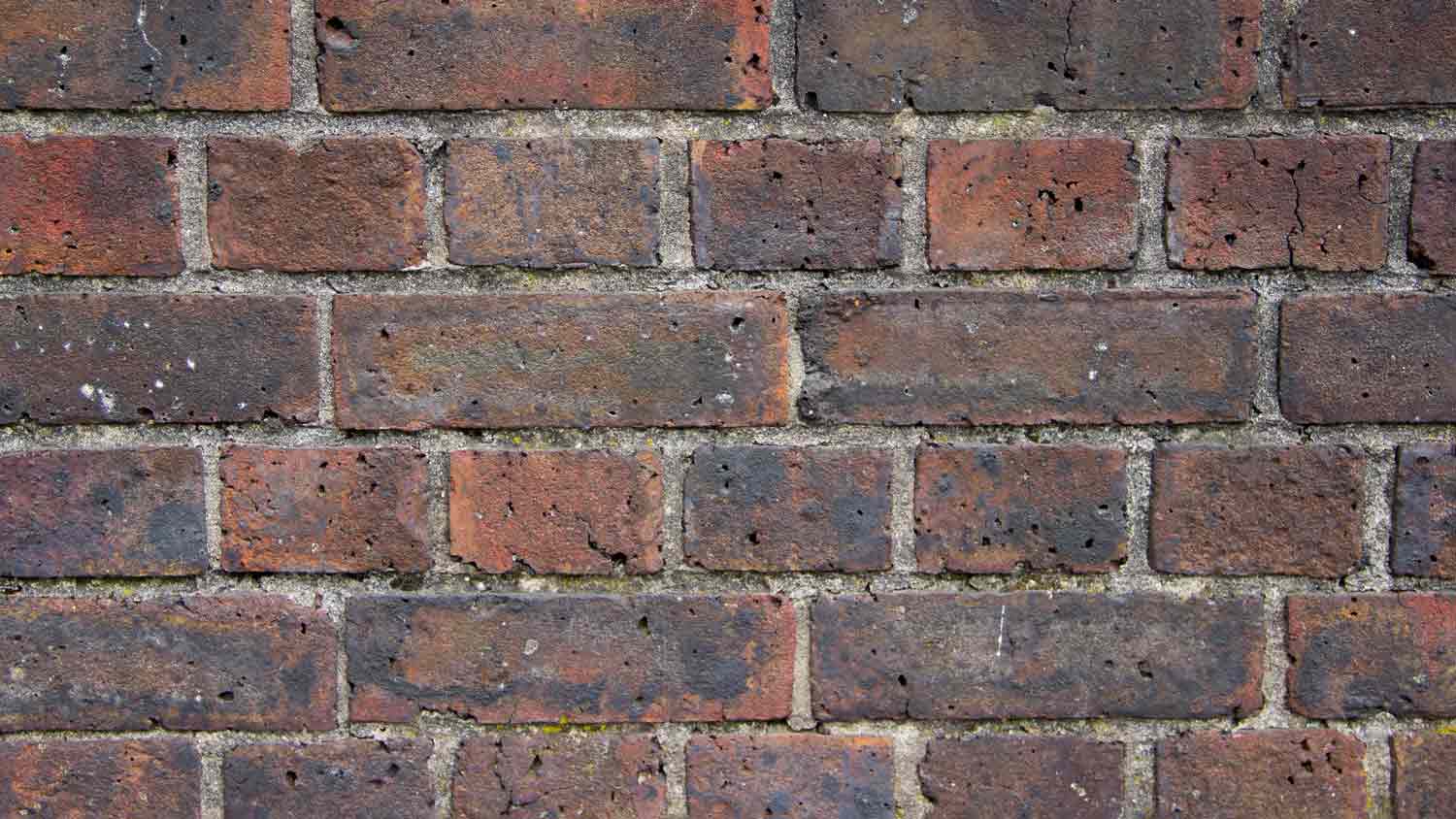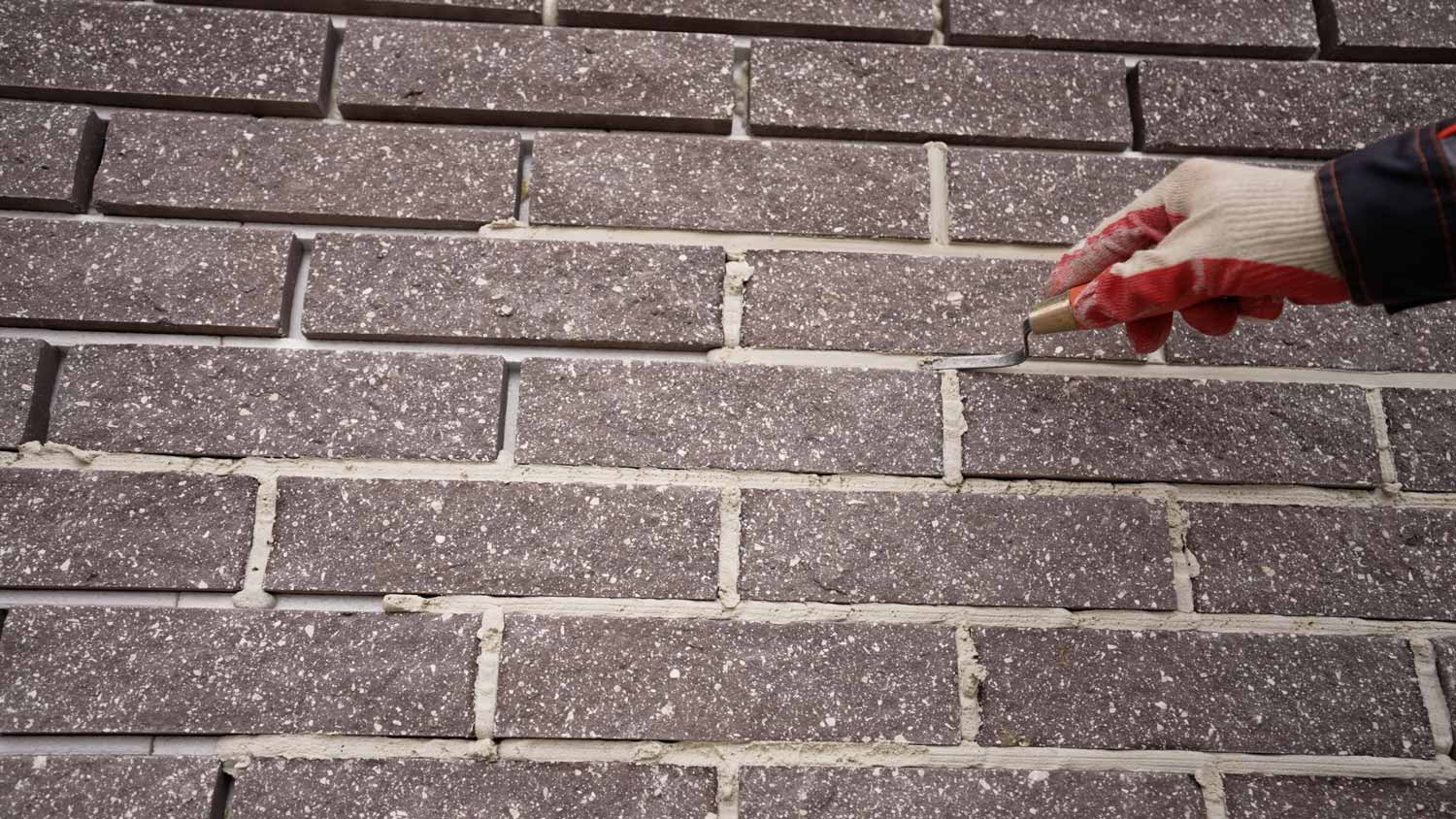
Discover the average stone restoration cost, including price ranges and key factors, to help you plan your next home project with confidence.
Don’t let them darken your day


Brick structures provide a rustic, timeless aesthetic. However, you may notice unsightly black stains forming on your brick walls over time. Depending on the root causes, black stains can harm your brick structure’s integrity, damage mortar, and even pose health risks. When left untreated, black stains tend to lead to more severe masonry problems, which result in more costly repairs. That’s why you should know these five reasons that cause black stains on your brick and how you should remove them.

Excessive moisture can discolor your brick and cause black stains to appear. Sometimes the stain might appear to be dark green instead of purely black. Be alerted: these are not simple discolorations but mold clusters growing.
The most effective method for removing mold from brick is dry ice blasting. Dry ice can “burn away” mold and prevent it from coming back by absorbing any residual moisture. Since dry ice turns into carbon dioxide upon contact, it won’t damage the brick surface compared to other blasting media.

If you notice dark greenish stains on your brick, they might be lichen, moss, or algae. These types of stains tend to appear on brick surfaces that don’t receive sufficient sunlight, as lichen grows in moist, dark, and cool environments. You may also find lichen stains near drainage pipes.
You can use a garden house to spray a vinegar and detergent mixture onto the brick, then scrub the surface with a hard-bristle brush. You can also power wash bricks with a lower setting so you remove the lichen without damaging the brick’s porous, brittle surface.
Carbon emissions from cars and industrial factories can leave black stains on your bricks. These types of stains are common in larger cities or on buildings near factories and form as carbon particles set on the brick’s porous surface. Visually, they may vary from pure black to dark grey.
Rainwater naturally removes carbon stains over time, although in busy traffic areas, the stains will form faster than rain can remove them. In such cases, power washing is one of the most effective ways to remove carbon stains.

Pollution in modern life can also lead to black stains on bricks. These stains are a combination of oil, grime, chemicals, and dirt. They often appear at the bottom of a building, where cars pass by and particles sink and settle.
Due to their oily and chemical contents, pollution stains are hard to remove with water alone. Instead, you can try a bleach-water solution with a garden hose, then scrub the surface with a hard-bristle brush.
If you notice black stains around freshly painted, dark-colored windows or door frames, they might be paint splashes. Other times, you may be dealing with spray-painted graffiti.
You can try to remove paint stains from bricks yourself. It is doable but extremely time-consuming. Therefore, it might be a lot easier for you to hire someone to clean up the paint stains.
There are several reasons why you might want a masonry contractor to remove the black stains from your brick walls:
Accessibility: If you’re dealing with stains more on higher floors or on chimneys, it’s much safer to have a contractor do the climbing and cleaning
Health concerns: You should let a professional handle harmful black mold stains, chemical pollution stains, and lead paint stains.
Convenience and efficiency: Removing black stains from bricks can be extremely time-consuming and labor-intensive. Why spend over 15 hours cleaning when you can put that time into something else?
Bricks are brittle: the porous nature makes brick surfaces brittle, and improper cleaning methods can damage the mortar and the bricks, leading to higher repair bills. A professional masonry contractor knows how to clean bricks. In the worst-case scenario, they’re insured to cover their own mistakes.
Regular brick maintenance is the best way to prevent black stains from forming. Primarily, this means seasonal cleaning and inspection for damages. Many masonry companies offer seasonal cleaning services that will give you peace of mind. Masonry contractors typically charge $40 to $100 per hour for basic projects.
Custom Paint Jobs LLC turned our outdated bathroom into a modern masterpiece.
Very professional and efficient with work. Answered each question I had with great knowledge and an informative response. Will be working with them again.
Window Depot did an amazing job on my deck. I wasnt sure what I wanted to do, but their composite decking was affordable and will last a long time. I am excited to have family over, and I am no longer embarrassed by my backyard. Jeff and the ground crew were polite, respectful, and caring for...
Storms Mobile Welding was great to work with. They were prompt, professional and did an overall excellent job on the project. I highly recommend.
Great tree company, very professional and honest. Glad we found them, they had the best pricing
AFS was excellent from start to finish. Jess, the sales associate, was fantastic...very knowledgeable and very professional. The installation crew was excellent. I couldn't be more pleased with the process. Best of all, my new floor looks fantastic!
Great experience all together. Dog friendly, courteous, great results and honest with recommendations. Will certainly be using Cardinal in the future for any carpet repairs
Eugene returned my call within minutes and was able to complete the job within a couple of days. Friendly and professional, and I feel his prices are reasonable.
We used Unique Hardwood Floor LLC three years ago to work on the floors of a 70 year old home that needed a great deal of work. Some floors needed repairs, some were replaced and others just needed to be refinished. It was a complicated job as they needed to blend the old and the new to...
It went awesome. Mark was very personable and showed up on time. He came in, took a look at what needed to be done, gave me a price and then got to work. He asked me to come over and check out what he had done a couple times to get my input which was appreciated. If I ever need and masonry...
From average costs to expert advice, get all the answers you need to get your job done.

Discover the average stone restoration cost, including price ranges and key factors, to help you plan your next home project with confidence.

Door or window lintel replacement costs $400 on average, but there are ways you can save. On the other hand, complicated work will increase costs considerably.

The cost to replace brick front steps depends on the type of brick, square footage, pattern, and more. Learn how much you may spend on this project.

You don’t need power tools to get clean, accurate brick cuts. This step-by-step guide teaches you how to cut brick by hand using simple tools and a free afternoon.

Maintaining a brick home requires inspections, cleaning, and sealing. Learn essential brick house maintenance tips to prevent rot, mold, mildew, and structural issues.

Fixing brick mortar is easier than most homeowners think. Use this guide to walk you through getting the job done with a few dollars and a few hours.